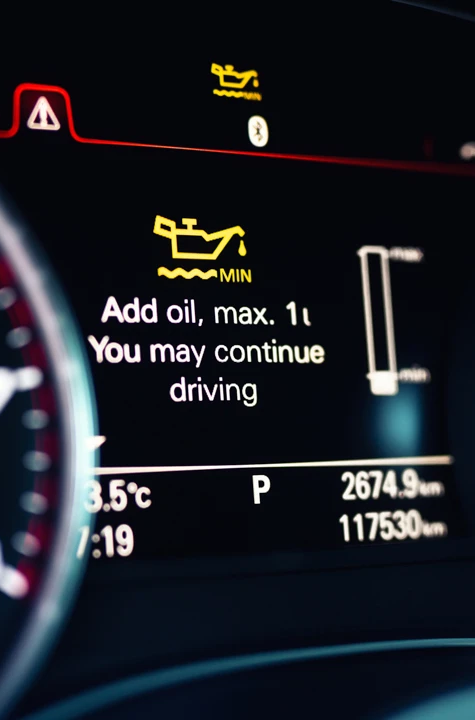
Engine oil consumption is a natural operational process in every vehicle. However, in some cases, engines start consuming it excessively, which can lead to serious mechanical issues and high repair costs. On this page, we will discuss the causes of excessive oil consumption, its symptoms, and the consequences of ignoring this problem for a long time.

What can you read about?
Causes of excessive oil consumption
Why is your engine burning more oil than it should?
Car models most prone to this problem
A detailed discussion of engine units that suffer from this problem.
Diagnosis methods
How to check if the problem is caused by piston rings, valve seals, or the crankcase ventilation system?
Solutions to the problem
How to check if the problem is caused by piston rings, valve seals, or the crankcase ventilation system?
Diagnosis methods
Learn how you can minimize oil consumption without significant financial costs and which professional repairs may help.
Which car brands have this problem?
Audi, Volkswagen, Skoda, Seat
Especially models with 1.8 TFSI and 2.0 TFSI engines (EA888 Gen 2).
Mercedes
Engines M271 (1.8 Kompressor / CGI), M274/M270 (1.6 and 2.0 Turbo), M156 (6.2 V8 AMG), M272/M273 (V6 and V8), OM642 (3.0 V6 Diesel).
BMW
Engines N20, N52, N54, and N55.
Ford, Fiat, and many others…
1.0 Ecoboost, 1.5 TDCi, 2.0 TDCi, 1.4 T-Jet, 1.6 Multijet, and others…

Symptoms of Excessive Oil Consumption
Many drivers are unaware that their engine is consuming too much oil until obvious symptoms appear. Here are the most common signs:
- Frequent Need for Oil Top-Ups – if the oil level regularly drops between changes (e.g., every 1000-2000 km), it may indicate a problem.
- Blue Smoke from the Exhaust – burning oil in the combustion chamber produces characteristic blue smoke, especially during acceleration or after prolonged idling.
- Oil on Spark Plugs – it can cause ignition problems, uneven engine operation, and increased fuel consumption.
- Contaminated Intake System – excessive oil blow-by into the intake can lead to carbon buildup on valves and intake manifolds.
- Decreased Engine Performance – oil entering the combustion chamber can cause improper engine operation.
Most Common Causes of Excessive Oil Consumption
Excessive oil burning can result from various factors, both operational and mechanical. The most common causes include:
- Worn Valve Seals – leaks in the valve system allow oil to enter the cylinders.
- Worn Piston Rings – excessive wear or carbon buildup causes oil to enter the combustion chamber.
- PCV System Issues – a faulty crankcase ventilation valve can cause oil to be sucked into the intake system.
- Turbocharger Leaks – in turbocharged engines, oil leaks through turbo seals can increase consumption.
- Incorrect Engine Oil – using oil with the wrong viscosity can accelerate wear, especially in older engines.
Consequences of Excessive Oil Consumption
Ignoring the problem over time can lead to serious consequences, including:
- Accelerated Engine Wear – lack of proper lubrication can lead to engine seizure.
- Damage to the Catalytic Converter and DPF Filter – exhaust gases rich in oil cause clogging in the exhaust system.
- Increased Turbocharger Failure Risk – oil can enter the intake system, speeding up turbo wear.
- Increased Fuel Consumption – a faulty engine often operates less efficiently, resulting in higher fuel consumption.
Two Approaches to Solving the Problem
Traditional but Expensive
If you want to solve the problem for good and don’t mind the costs – this section is for you!
Cheap and Unconventional
Do you have a limited budget? Only a step away from an expensive overhaul? It’s worth taking a risk and using chemicals that dissolve carbon and free up the piston rings.
